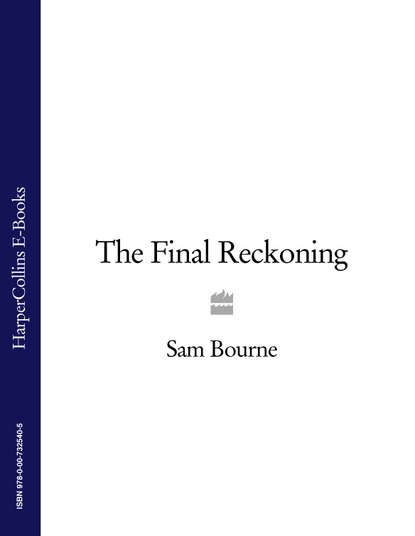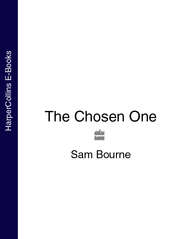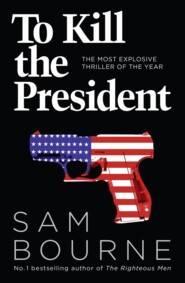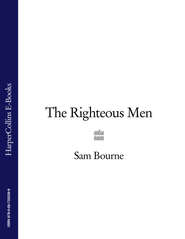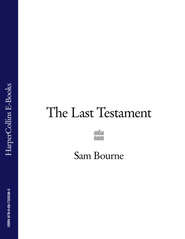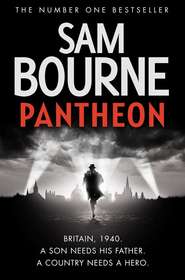По всем вопросам обращайтесь на: info@litportal.ru
(©) 2003-2024.
✖
The Final Reckoning
Настройки чтения
Размер шрифта
Высота строк
Поля
Even then, I don't know whether I was scared. These were new rules that we would have to live by, but it seemed better than the Lithuanians and their pogroms. If this was all they planned to do to us – make us wear a yellow star and stay home after dark – then it was better than being beaten on the streets.
But I could not comfort myself like that for very long. A few mornings later, we were woken by a loud banging on the door. I sat bolt upright. My chest was banging. For the first, confused seconds I wondered if it was my mother at the door: I imagined her, smiling, her hair combed and neat, come to take us away from here. I must have been about to say something because Hannah, who was also now sitting up, placed her finger over her lips and fixed me in a glare that told me to keep very still.
The banging on the door started up again, louder and more insistent. We could hear the same noise repeated up and down the corridor and outside on the street too: Nazis pounding on the doors of the Jews.
Hannah got up, grabbed something to cover her nightclothes and opened the door.
He was tall, his back straight. I couldn't stop staring at his boots. They shone like glass and when they moved, the leather creaked.
‘You have ten minutes to gather everything,’ he barked in German. ‘You are moving!’ And with that he turned and headed for the next door. There were more men repeating the same instructions up and down the staircase, above and below us. Now we heard those same words coming from the street below, amplified by a megaphone.
When Hannah turned around her face was serious. ‘Get dressed. Rivvy and Leah, don't just wear one skirt. Wear two or three. As many as you can, one over the other. Do the same with sweaters and shorts. You too, Gershon. As many clothes as you can.’
Then she scurried around the two rooms, shoving whatever she thought essential into suitcases. She moved fast, but she was not panicked. And because she wasn't, we weren't.
After a few minutes she added, ‘You can take one thing each that you really, really want. Just one. Everything else stays behind.’
I reached for a book of adventure stories. Leah grabbed her favourite doll, Rivvy took a hairbrush. And Hannah calmly removed a picture of my parents from its frame and placed it in her pocket. Then she ushered us to the door and closed it, for the last time. We waddled down the stairs: I was wearing four or five shirts and two coats, as well as carrying our largest suitcase. By the time we reached the street, I thought I might boil with heat.
We saw many Jews like us, trying to carry as much as they could. Many were carrying bags of food, tins or sacks of flour. Some had piled up makeshift wagons or trolleys. Hannah scolded herself. She had not thought of that.
Within a few minutes, we were ordered to walk. We would be crossing Kaunas, they said, to our new homes. We were surrounded by men with guns and, more frightening to me, dogs. We did as we were told.
Some people lasted just a few steps. They couldn't carry what they had taken and they began to drop plates and cups, which broke noisily on the ground. ‘Quiet, Jew!’ one of the Nazis shouted. Some of the older people collapsed.
All the time, the Lithuanians stood and watched, as if this were a street carnival. Sometimes they shouted and taunted us. If they saw something they liked they rushed forward and grabbed it. They knew the Germans would not stop them from stealing. I kept on staring at this crowd. And then suddenly there was a familiar face.
‘Antanas!’ I called out. ‘It's me, Gershon!’ It was the boy I used to play ball with; we had had a game a week earlier. But he just stared back at me, holding tight the hand of his father.
A lady began to walk beside us. She said to Hannah, ‘I hear they're taking us across the river, to Viriampole. We're all going to have to live there.’
‘All of us? But Viriampole is tiny.’
Hannah thought the Viriampole district would be too small for all the Jews of Kovno, who numbered in the tens of thousands, and she was right. What she did not know then, none of us did, was that there were more who would be crammed into those few small streets of Viriampole. The Germans had sent army patrols into the countryside searching for any Jews there, looking in every last village, little places like the one whose name my mother would never mention. If they found one Jew here or three Jews there, they too had to move into Viriampole. If a Jew refused to move, he would find his house set on fire. So he moved.
Years later, people always asked us, ‘Why did you obey? Why did you not rise up and resist?’ But we did not know then what we know now. We did not know that we were being marched into a ghetto. I remember thinking maybe things will be better for us if we are all together in one place. At least we will be far away from those Lithuanian murderers.
The walk was long and hard. I kept shifting the suitcase I was carrying from one hand to another, tilting like a reed that was about to break. But I did not stop. I was the man of the family now and I knew that Rivvy and Leah needed me to keep going.
Finally we came to the narrow concrete bridge which marked our crossing into Viriampole.
‘Quickly, quickly,’ Hannah said, shooing us over. I think she was hoping we would not notice the barbed wire and the watchtowers. Or perhaps she was hoping I would have no time to read and translate the German signs that marked the entrance. ‘Plague! Entry forbidden!’ said one and directly underneath there was another: ‘Jews are forbidden from bringing in food and heating supplies – violators will be shot!’
Once we were inside, the soldiers were no longer walking beside us. Now that they had herded us into the ghetto, their job was done. We waited for a few minutes, not just us but everyone. We were waiting to be given some kind of instruction or at least a plan. But slowly the penny dropped. One man broke away from the crowd and dashed into the first entrance he saw. He then appeared from a first floor window and beckoned the rest of his family to join him. Immediately another family followed and then another and then another. It took a second or two for Hannah to understand: this was to be a free-for-all, you lived in whatever corner you could find.
We went to Linkuvos Street with the lady Hannah had been talking to. Later I wondered if Hannah had given her something, perhaps some jewellery of my mother's, because I know Hannah wanted us to be with a family. She understood even then that there would be times when she would need someone else to keep an eye on us. And so we crammed thirteen people into two rooms, the other family and us.
It seems idiotic now, but I remember thinking that, yet again, this would be the end of our troubles. Yes, it was a ghetto. But we were all together and there was work for those who were fit – and work meant food. I lied about my age and got a permit to work. I was twelve now but tall enough to pass for sixteen. And so each morning I would cross the narrow bridge out of the ghetto in a detail of thirty men, all of them older than me. We were given special yellow armbands to wear on our right sleeves, then loaded onto trucks and driven a short distance to Aleksotas, where our job was to build the Germans a military airbase. We had to do the work of machines: lifting rocks and breaking stones. We worked from dawn till dusk, twelve hours or more, until every sinew, every tendon was screaming for rest. We stopped only for a few minutes, to drink thin soup and eat a crust of bread.
But at least it was food. Hannah, though, was struggling to find enough for the others to eat. And the girls were getting sick. Everyone was. The ghetto was so full, maybe thirty thousand people stuffed into an area fit for one thousand. People were sleeping on the streets, even in the cold. The synagogues became dormitories. One morning, I stepped over a man who I thought was sleeping. But he was not asleep. He had died and no one had buried him.
It was around this time that Hannah decided she too would have to get a work permit. If she had one of those precious yellow pieces of paper, then she would earn food for herself but, more importantly, she would have a chance to get out of the ghetto, somehow buy food and smuggle it back in: that way she could feed Leah and Rivvy something more than the starvation rations provided by the Nazis. It was the only way.
I don't know what she did to get that permit. I like to think she met up with the resistance, who were forging papers all the time. But sometimes I think something else. Because Hannah was a pretty girl and when you are hungry and your family is hungry you will do desperate things.
And so Hannah began to leave the ghetto each morning, along with me and the rest of the workers. There were checks at the gate, but the guards were not German. They were Lithuanian police. Perhaps this fact has been forgotten, but the Nazis did not do all this alone. There were very few Germans in places like Kovno. They relied on the local people to help them.
Then came that cruel day, the one that changed everything. Hannah never told me about it in so many words, but I have pieced together what happened and have made myself set down those events here. So that the memory of it will not die.
Hannah got through the check without any problems. She worked in the normal way. But at some point she must have broken away from the rest of the work detail, because when she came back that evening she had some bread. Not a whole loaf, but a chunk of bread that she was saving for our two sisters who had no permits and no food. She hid it under her coat. I think of her now, a little girl standing there with her heart thumping.
Perhaps in the queue at the gate she looked nervous. Something gave her away. Not to the rest of the policemen on duty: they were too drunk to notice anything. But to the son of one of the Lithuanian guards, a boy not much older than me, perhaps thirteen or fourteen at most, who often used to hang around at the gate with his father and his pals. The older men would laugh and joke with him, as if he were a team mascot. He even had his own uniform. But we called him the Wolf, because even though he was so young, he was as cruel as a beast. His face seemed to shine with evil. The smile was wide, baring teeth that seemed ready to drip with blood. Once you saw that face, you could never forget it. The Wolf would plead with his father to let him search the Jews and the men would laugh at his eagerness. That night he asked to search Hannah.
I can imagine how she trembled as he pushed and prodded at her clothes, feeling at her bony frame. He was about to let her go when he gave one last poke, under her armpits. And it was there he found the lump of bread.
The Wolf turned around to the cheering guards like a novice fisherman who has just reeled in a prize trout. Nodding, he soaked up their applause.
‘So what will be your reward, son?’ his father beamed, his truncheon dangling at his side. ‘Name it.’
The Wolf paused while Hannah stood there shivering. The rest of the ghetto inmates stared down at the ground, wanting this moment to be over.
‘Let me punish her myself.’
There was a loud, lecherous roar from the guards. Several placed their left hand on their right arm and pumped their biceps. They began a chant, a Lithuanian song about a boy becoming a man. The Wolf led Hannah to the ghetto cells, where the jailer recognized him. With pride the Wolf explained what had happened; the jailer stepped aside – and away.
‘Take off your clothes,’ the Wolf told Hannah.
Hannah stood still, unable to move.
‘I said, take off your clothes.’
Hannah was cold, her fingers like stiff shards of ice. She did not move fast enough. He punched her in the face. ‘Listen, Jew! I won't tell you again. Take off your clothes!’
Hannah did as she was told and stood there naked with her head down. She would not have seen the Wolf reach for his truncheon and hold it high before bringing it down onto her arms, her back and thighs. Her cries of pain must have sounded as if they were coming from a creature other than a human being. When she fell to her knees, the Wolf kicked her in the face, in the ribs, in the kidneys, in the place she always cherished as the womb of her future children. Soon she lay prone on the floor, waiting for unconsciousness, or death.
Then it stopped. The Wolf seemed to have grown tired, or bored, and he stepped back. Hannah let out a brief sigh; her ordeal seemed to be nearing its end.
There was a clink of metal, the sound, Hannah realized, of a belt being unbuckled. Was he about to flog her?
But now she felt two cold hands on her hips, hauling her up from the floor like a joint of meat. He was not trying to make her stand up, but rather forcing her into a kneeling position, so that she was on all fours.
She could barely feel her legs, let alone move them. She collapsed back onto the floor several times, but each time he pushed her back up. She was confused. Why did he need her to kneel like this?
Suddenly she sensed him near her, too near, his body arched over hers. She heard the unfastening of a zip.
The sudden realization made her scream in protest, but he brought his hand down over her mouth, clamping her jaw tight so that she could not bite, and thrust himself inside her.
How long it lasted she did not know. Her mind left her, it fled to the same place it had gone when she had seen her mother's corpse hanging from the ceiling. She vanished from herself. But then as his assault endured she saw something on the ground, just a few inches away. The mere sight of it brought the decision instantaneously, as if the object itself had determined how it should be used. She would merely follow the impulse that seemed to emanate from this small, random thing: a bent and rusty nail that lay loose on the floor.





